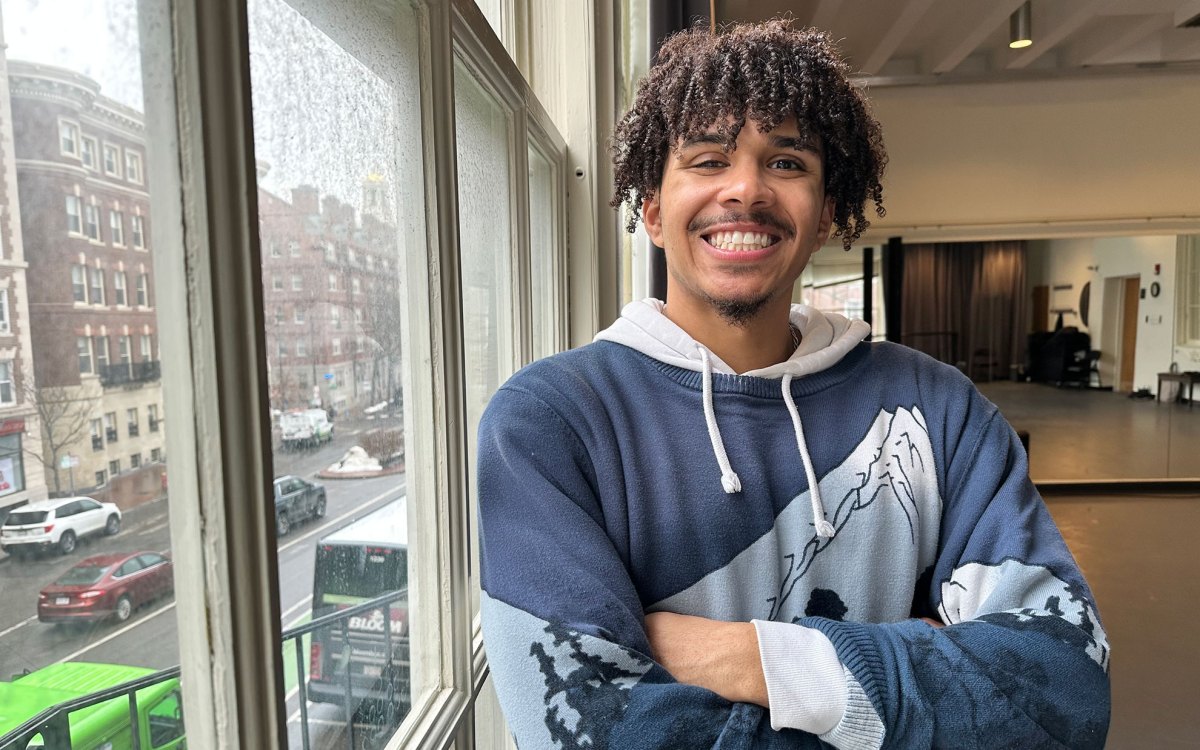Du Bois fellow makes ‘Little Fugitive,’ take two
New version of classic film has darker themes, sociopolitical preoccupations
The wonder of Brooklyn’s iconic amusement park Coney Island as seen through the eyes of a young runaway is at the heart of the 1953 classic film “Little Fugitive” by the directing team of Ray Ashley, Morris Engel, and Ruth Orkin.
What lies at the heart of Joanna Lipper’s ’94 recent remake is much darker.
The film’s opening sequence sets the stage. Using grainy, archival footage and a child’s voiceover to describe the grim scene, it depicts the fate of a Coney Island elephant deemed unsafe by park operators.
The flashback is just one of the many techniques employed by Lipper, a fellow in residence at the W.E.B. Du Bois Institute, whose “Little Fugitive,” coupled with her short documentary “Inside Out: Portraits of Children,” was recently released on DVD by Cinema Libre Studio.
The 1953 film is a simple story of two brothers, Lenny, 12, and Joey, 7, who must look after themselves when their mother leaves to visit their sick grandmother. After a practical joke, Joey is convinced he has killed his brother. Horrified, he flees to Coney Island.
With poignant black-and-white images and limited dialogue, the picture follows Joey’s wanderings through the maze of Coney Island attractions, ending ultimately with a happy family reunion.
Heralded by famed French director François Truffaut for its innovative use of handheld cameras, which included a camera designed by Engel that he strapped to his body, the film received an Oscar nomination for best screenplay and won the Silver Lion award at the 1953 Venice Film Festival.
Lipper’s remake is a more complex, unsettling work, one that explores the themes of child neglect, the challenges and heartbreak of children of incarcerated parents, the inadequacies of the foster care system, and sexual predators. Her characters are examined in greater detail, including the boys’ mother, who is often absent or hungover, and their father (unaccounted for in the original), who is in prison.
“I looked at the original movie and after watching it there were some unanswered questions,” said Lipper, who wanted in her own work to further develop the characters, especially that of the older boy, Lenny.
“This question of who [Lenny’s] father was and how his father in some way disappointed him and abandoned the family, or wasn’t there as a role model for Lenny, is a central question to Lenny’s character.”
Following its world premiere in 2006, the feature-length drama has screened in film festivals from Seattle to London and was recently shown in August at the Coney Island Museum and in September at the Jacob Burns Film Center in Pleasantville, N.Y.
Intelligent, energetic, and driven are all qualities that accurately describe Lipper, who, at 36, has two documentaries and a book about teen mothers, “Growing Up Fast,” to her name.
Reflective, visually alluring, and socially aware are qualities that characterize her work. Like “Little Fugitive,” Lipper’s book and documentaries examine the roles that imagination, creativity, sadness, longing, and dreams play in the development of child and adolescent psyches, as well as a variety of social issues ranging from teenage pregnancy to welfare reform to domestic and child abuse.
For Lipper, directing combines her two passions: film and psychology.
“I find that directing actors or doing a documentary is very closely linked to psychology,” she said. “I am interested in psychoanalysis and in memory, trauma, identity, and family, and under the umbrella of being a film director I get to engage in those different areas.”
Growing up in Manhattan close to Broadway shows fostered Lipper’s interest in drama and musical theater. She completed her high school’s academic requirements by 11th grade and spent her senior year at the performing arts school HB Studio in Manhattan’s Greenwich Village under the guidance of Viennese actor and director Herbert Berghof. There she developed her love of directing, drawn to complex and challenging behind-the-scenes work and the thrill of the creative decision-making process.
She applied early to Harvard, was accepted, and majored in literature and film. After graduation, an interest in children and psychology led to a master’s degree in psychoanalytic developmental psychology from University College London and the Anna Freud Centre.
Lipper is now working on her next project, developing a film adaptation of “A Girl from Zanzibar,” based on the novel of the same name by Roger King. The work tells the story of a young illegal immigrant from Zanzibar who tries to find her way in London and the United States amid scandal and intrigue.
Lipper’s films are often screened in conjunction with panel discussions that address the social issues prevalent in her work. The format, said the filmmaker, allows for an open exchange, something that she hopes can be the first step to meaningful change.
It’s important, she explained, “to have diverse members of a community gather to watch a film and have the opportunity afterwards to talk about the issues, the questions, and the emotions that [they] feel as a result of the film, and to explore in a group setting how these elements might actually generate new insights, raise awareness, and affect … perspectives.”




